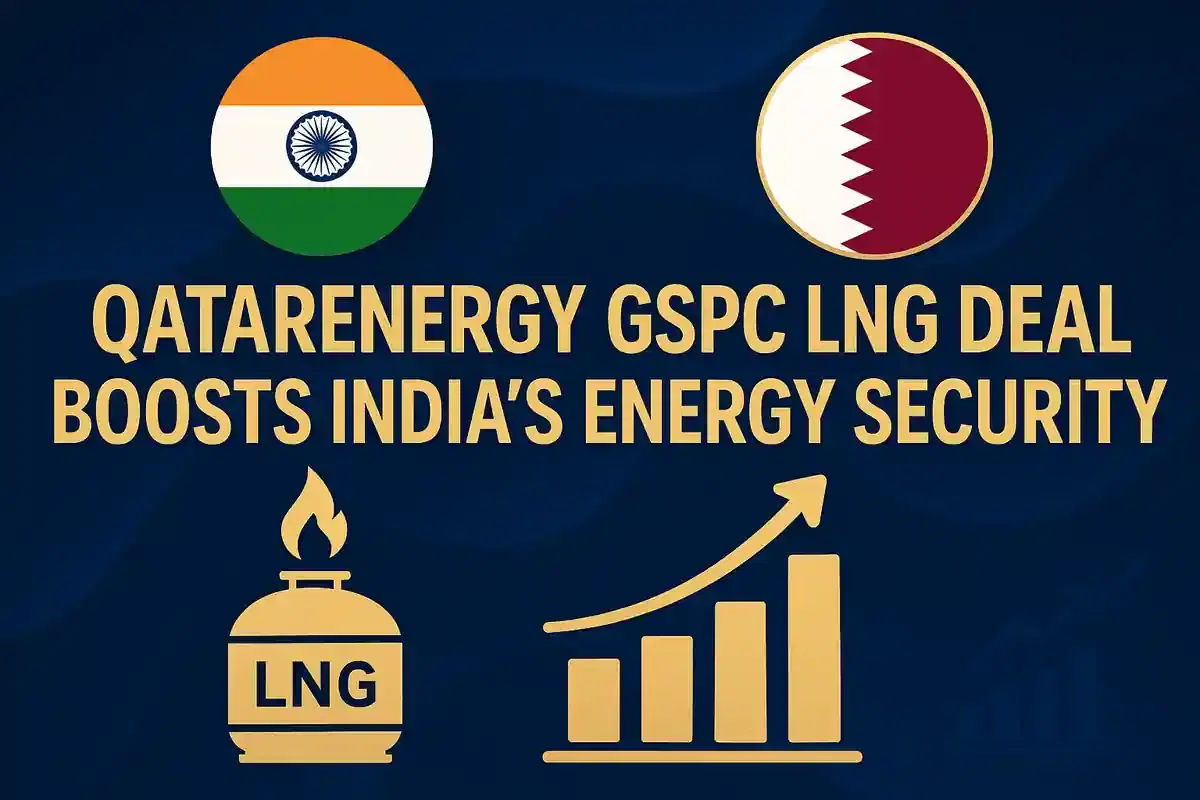QatarEnergy and GSPC Sign 17-Year Deal for 1 Million Tonnes Annual LNG Supply to India
Energy
|
29th October 2025, 8:31 AM

▶
Stocks Mentioned :
Short Description :
Detailed Coverage :
QatarEnergy has entered into a significant 17-year agreement with India's Gujarat State Petroleum Corporation (GSPC) to supply a minimum of one million tonnes per annum (mtpa) of Liquefied Natural Gas (LNG) to India. Deliveries under this contract are scheduled to commence in 2026 and will be made directly to Indian terminals on an ex-ship basis.
This new deal highlights QatarEnergy's ongoing commitment to meeting India's growing energy needs and solidifies its role as a key LNG supplier to the Indian market. It aligns with India's national vision to enhance energy security and accelerate its shift towards a cleaner energy mix. This collaboration builds upon the existing energy ties, including a previous long-term LNG supply agreement signed between QatarEnergy and GSPC in 2019.
India is a rapidly expanding energy market, currently operating eight LNG terminals with a total capacity of 52.7 million tonnes per year. The country plans to significantly increase its import capacity to 66.7 mtpa by 2030 and is developing two additional LNG terminals. India has already become the fourth largest global importer of LNG in 2024, accounting for 7% of worldwide imports.
Impact: This long-term supply agreement is crucial for India's energy infrastructure and economic stability, providing a predictable supply of a vital energy resource. It will support industrial growth and efforts to decarbonize the economy.
Impact Rating: 8/10
Difficult Terms Explained: Liquefied Natural Gas (LNG): Natural gas that has been cooled to a very low temperature (around -162 degrees Celsius or -260 degrees Fahrenheit) to transform it into a liquid state. This process makes it much easier and safer to transport and store over long distances. Tonnes Per Annum (mtpa): A standard unit of measurement used in the energy and commodities industries to quantify the volume of material, such as LNG, produced, transported, or supplied over a one-year period. Ex-ship: A delivery term in a contract. It means the seller is responsible for delivering the goods (in this case, LNG) onto the buyer's vessel or to the buyer's terminal at the destination port. The buyer then takes responsibility for unloading and onward transport.